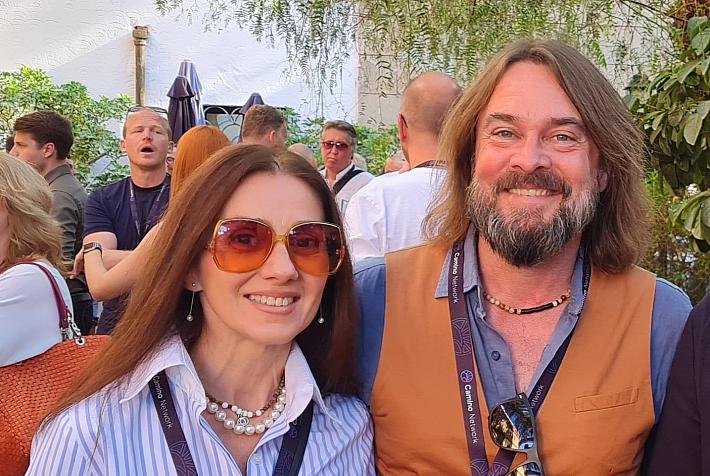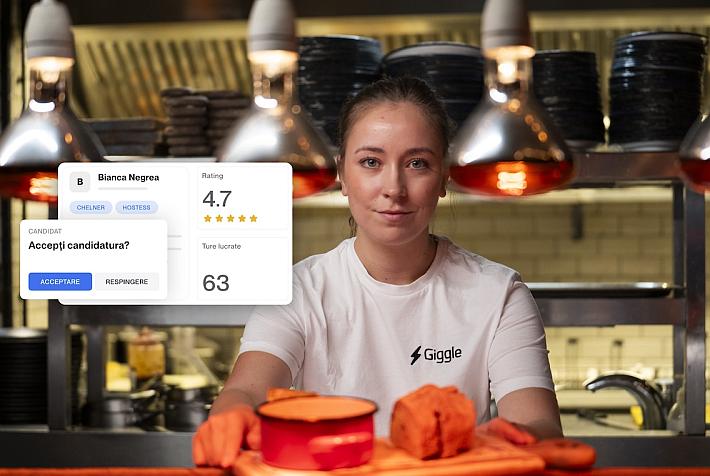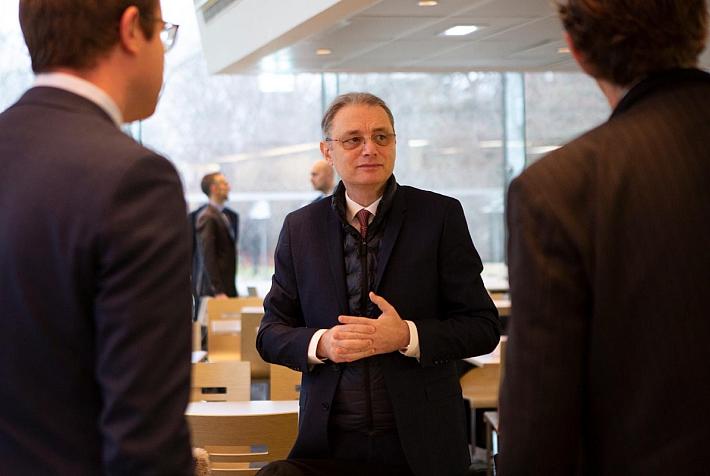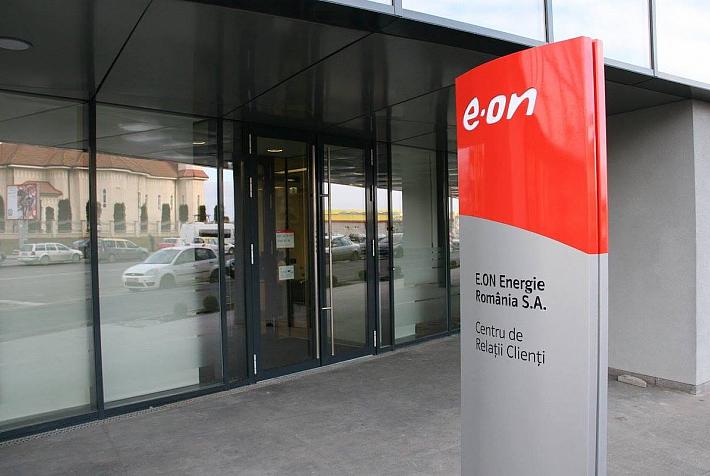Doug Richard, School for Startups: Romanian entrepreneurs no more burdened than anywhere else

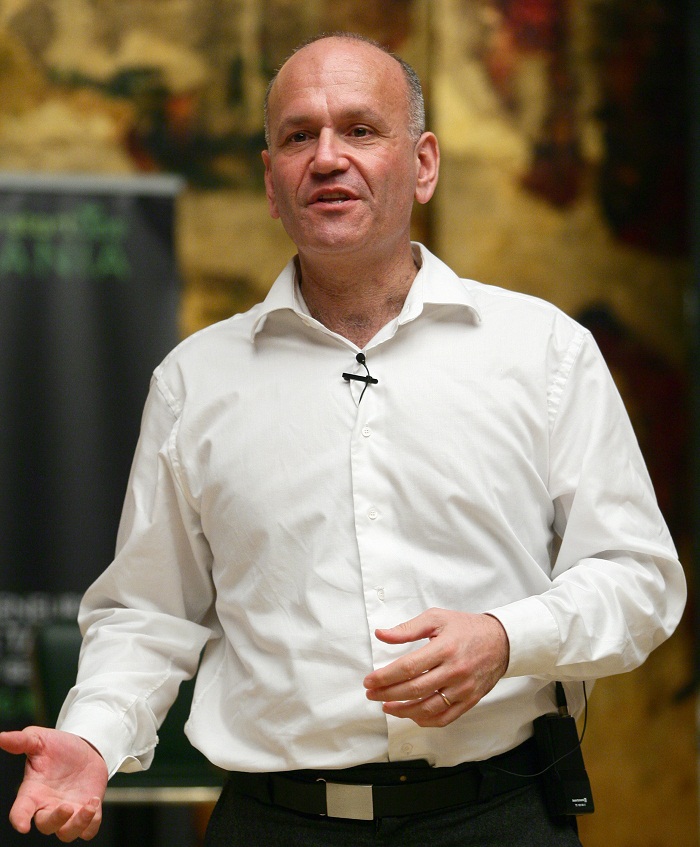 Romanian entrepreneurs complain about various local impediments to running a successful business in Romania, but in fact they're no different than those faced by entrepreneurs in other countries, says Doug Richard, investor and serial entrepreneur, founder of the School for Startups, in an interview for Romania-Insider.com. More importantly, the outsiders' perception of Romanian startups does not factor in the Romanian trait. Startups are just startups, and entrepreneurs are judged based on their abilities, not on their nationality.
Romanian entrepreneurs complain about various local impediments to running a successful business in Romania, but in fact they're no different than those faced by entrepreneurs in other countries, says Doug Richard, investor and serial entrepreneur, founder of the School for Startups, in an interview for Romania-Insider.com. More importantly, the outsiders' perception of Romanian startups does not factor in the Romanian trait. Startups are just startups, and entrepreneurs are judged based on their abilities, not on their nationality.
What are the biggest impediments startups have to overcome in Romania in order to survive and eventually become successful?
Romanian businesses are like any other business in the world. Every economy in every country has local issues its entrepreneurs must address and Romania is no different. As a minor example, Romania has quite a winter every year and this has an impact on some enterprise. People who run events, those who operate restaurants, hotels, etc. have to factor the climate into their business plans. Local health regulations, tax law, financing rules are no different from the weather in that they must be accommodated by a business owner. I think almost every nation on earth could do more to foster, nurture and support startups and it would be beneficial to local, regional, national and international economies if they did. But I don't see Romanian's as being more burdened by local impediments to entrepreneurs than entrepreneurs that come from other nations.[pullquote] "There are certainly much more difficult places to start a business".[/pullquote]
Which are the good and bad traits of Romanian startups, in your experience? What's different from Eastern and Central Europe/Western Europe and Romania in this sense?
I think Romanian startups share the same strengths and weaknesses young businesses around the world have. Innovations, insight, hope, determination are properties of good entrepreneurs everywhere.
Entrepreneurs everywhere also struggle with trying to learn what they need to know and work at the same time. They could use more advice from a few people who have actually built businesses from the ground up and they struggle to cope with their lack of visibility to their customers. Entrepreneurs, and many who advise them, think lack of startup capital and easy financing are issues. Perhaps they are to a limited degree.
But money doesn't buy a business, a clear business message to communicate to the market, a great product design or the best team. Without those things no startup thrives. With them, almost any startup can approach marketing partners and customers without cash and get orders. With orders in hand money is easily found on great terms.
In your view, what is the perception of startups and small businesses in Romania? How is this compared to other countries?
These days entrepreneurs, investors, banks and even consumers live in a fairly global economy. We buy where it is cheapest, sell where we can get the best price, shop for what we need around the world and in our own backyard. I'm not saying that all divisions between nations have melted away, or that there is no difference between the laws of one nation and another. There are tremendous and very important differences, obviously. But when it comes to startups and small businesses, they are generally perceived as being separate from the nations in which they originate. So Romanian startups and small businesses are just perceived as startups and small businesses. Their entrepreneurs are perceived as business owners. They are judged based on their ability to compete in the market places in which they choose to do business.
What is the usual Romanian entrepreneur's reaction to business coaching?
They seem quite like all the other entrepreneurs we work with. Open, insightful, practical, pragmatic, determined. They seem well prepared to face the challenges of starting a business. But that may be because that's who we try to reach through our marketing efforts.
What are the common features you have noticed among Romanian entrepreneurs, if you were to make a general portrait?
That's an interesting question because the people we've had move through our program are quite diverse. We've had event managers, high tech startups, business support companies, tour agencies, even someone who raises game birds for sale to hotels. I don't know if you can call "diversity" a common trait. Maybe "independence" could be called one. Each entrepreneur seems intent on pursuing their own vision for their business.
How do Romanian entrepreneurs usually react to the need for more investment in their business, how do they usually try to earn money, and why?
That's a very broad question. Mostly they see a need for something in the market and they work to deliver a solution to meet it. They look at the same sources of funding most businesses do as they grow. Early on the launch with monetary support provided by friends and family and maybe some grants from government agencies. Later they look to investment from angel investors and loans from banks to grow.
Once an angel investor is on board with a Romanian startup, what should he/she expect from this relationship, in general?
Angels invest in startups for all kinds of reasons. Sometimes there's a tax advantage. Sometimes they think they see an immense opportunity to put money into something early and profit greatly from helping it grow. Sometimes they just like being a part of startups and they have enough money to be an important support to several.
Interview by Corina Saceanu, corina@romania-insider.com
(photo source: Doug Richard)







